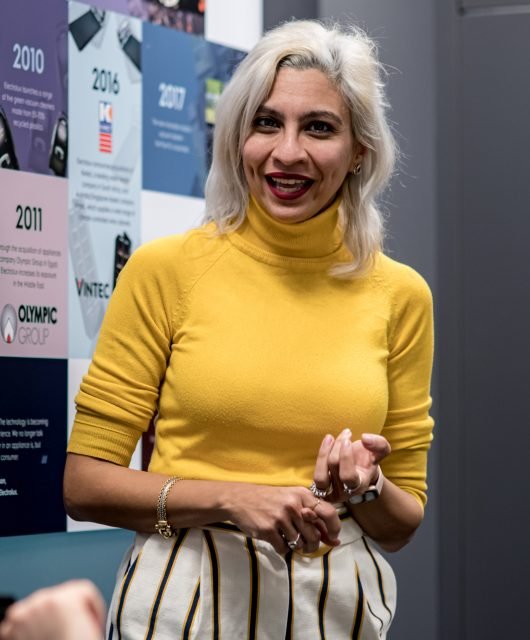By: Najeeb Jarrar, Head of Consumer Marketing in MENA, Google

Organizing the world’s information and making it universally accessible is the core of Google Search. Every day millions of people turn to Search to help them find useful and reliable information. Whether Kunafa recipes, breaking news or the latest information about Covid-19, the Search journey towards surfacing the most relevant and helpful information starts before clicking enter on Google Search. While Search in Arabic has come a long way since 2007, the potential for a better Search experience is limitless.
Organizing the world’s information
Google Search is like a library which holds information from hundreds of billions of publicly available pages on the web. To organize this information our software, known as crawlers, constantly visits publicly accessible web pages and looks at things like how often your keywords appear on a page, and website freshness to index web pages in Google’s Search Index (much like the index at the back of a book. This makes it easier to look at the different keywords and signals to identify relevant pages when a query is entered.
The web is not the only place where useful and reliable information can be found, this is why Google also partners with organisations to send data feeds, a method to receive real-time data from different data sources, to Google Search which helps people find data from public sources like the World Bank
Ranking results to show the most useful information
Once the information has been Indexed Google uses automated systems or algorithms to “rank” results in a way that ensures useful and reliable results are shown at the top. The algorithms look at many factors, including the words in a query, relevance and usability of pages, expertise of sources, and location and settings. This helps determine the most relevant rankings. It’s important to note that the vast majority of Search results do not show ads and ads are only shown when relevant to queries and are clearly marked as Ads.
To help ensure that Google Search shows high quality results, Google works with over 10,000 trained external Search Quality Raters around the world who follow strict guidelines to evaluate sample results. These ratings help Google measure how well Search systems are working to deliver quality content that’s aligned with how people around the world evaluate information.
Maximising access to information
Google’s approach to information quality and Search result removals aims to strike a balance between ensuring that people have access to the information they need, while also protecting against harmful content online.
Google therefore only removes web pages from Search results in very limited circumstances such as compliance with legal obligations and in accordance with Google Search’s policies. Google upholds a high standard when it comes to legal requirements to remove pages from Search results and encourages people to report content they believe violates the law. People can also see government requests for removal in Google’s Transparency report.
Beyond legal requirements, Google has policies focused on highly personal content appearing on the open web such as financial information, without consent.
It’s important to bear in mind that removal from Google Search results does not mean the content no longer exists on the web – only a website owner can remove content from the internet.
Tackling spam and bad actors on the web
Google also invests in systems to ensure that sites don’t use deceptive or manipulative behaviour to rise in Search results. In 2020 alone, Google’s systems found 40 billion spammy pages every day. Google’s automated systems are able to detect the majority of spam, while some are tackled manually by Google’s spam removal team who flag pages if they violate the Webmaster Guidelines.
The way forward
Search has come a long way and is constantly evolving to meet the needs and expectations of those who rely on it to access the world’s information. There have been a number of innovations that have helped present information in a more useful way from Augmented Reality in Search to Knowledge graphs. However, Search is not a solved problem. While the web and people’s expectations of a search engine are ever evolving, Google’s commitment to helping people access information, wherever they may be, remains the same.





